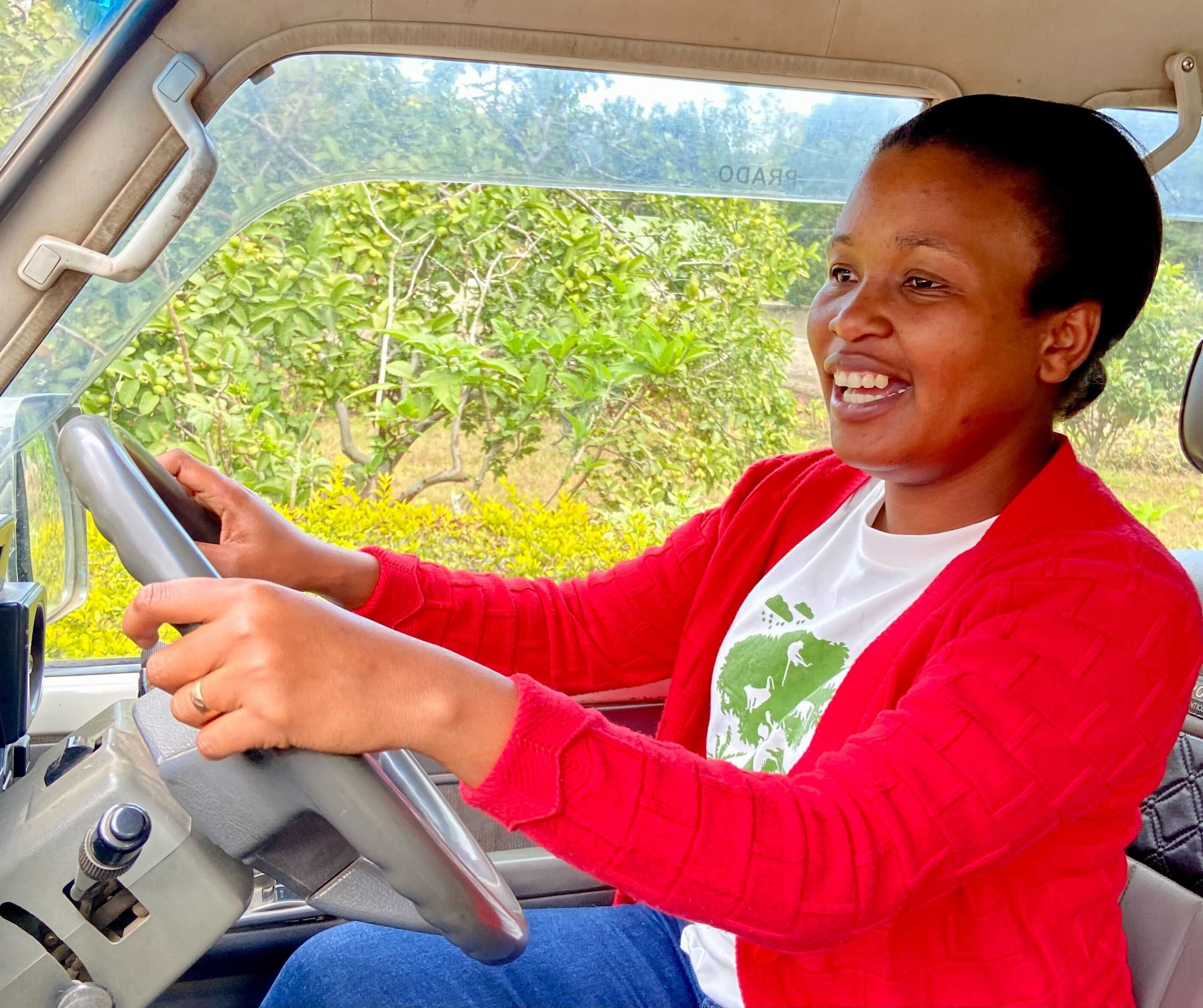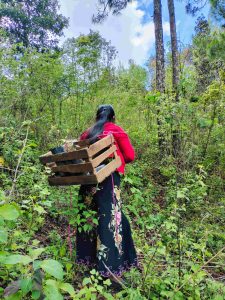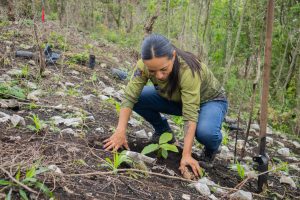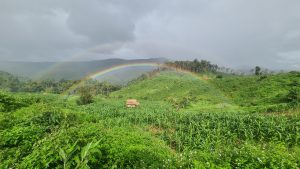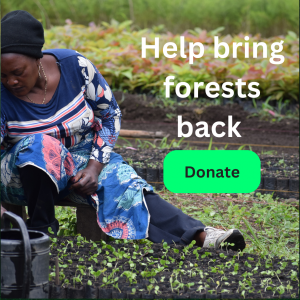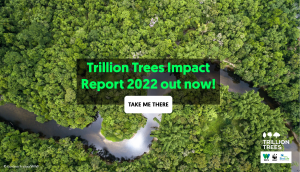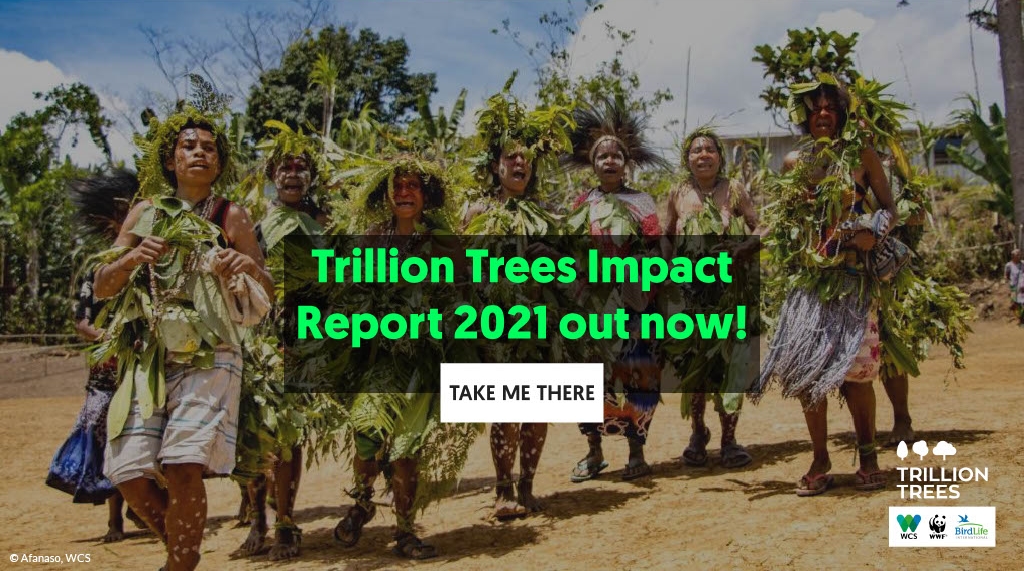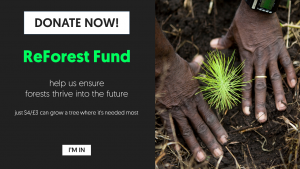By Vicky Mbofu, assistant programme director of the Southern Highland Conservation Programme, WCS Tanzania
As a child, I grew up in a small settlement in the Pwani region of Tanzania. One of our neighbours used to take us to a small urban forest in Kongowe, just outside my village. Even in such a small natural space, his passion for nature inspired me; I remember looking up at the huge indigenous trees and thinking about how old and beautiful they were. My mentor at school spotted this spark and helped me apply for a place at university where I studied Wildlife Management. The course included forests and lots of other interesting science too.
When I graduated, I applied for a volunteer position at the Wildlife Conservation Society (WCS) helping collect socio-economic data and data on a newly discovered monkey (Rungwecebus kipunji), and three months in I was offered a permanent job on a REDD+ (Reducing Emissions from Deforestation and Forest Degradation) project. And the rest is history!
Much of my early work focused on community engagement, working with communities to help find methods to avoid deforestation. Some of this included developing ways in which people could earn a living sustainably from the forest, for example through beekeeping or community forest management. But also addressed was helping people find ways to generate an income from the areas surrounding the forest so that trees didn’t have to be cut down and reduce communities’ dependency on these ecosystems. Tree-planting was complemented with raising community awareness on the importance of conserving their forest and sustainably utilizing the planted trees.
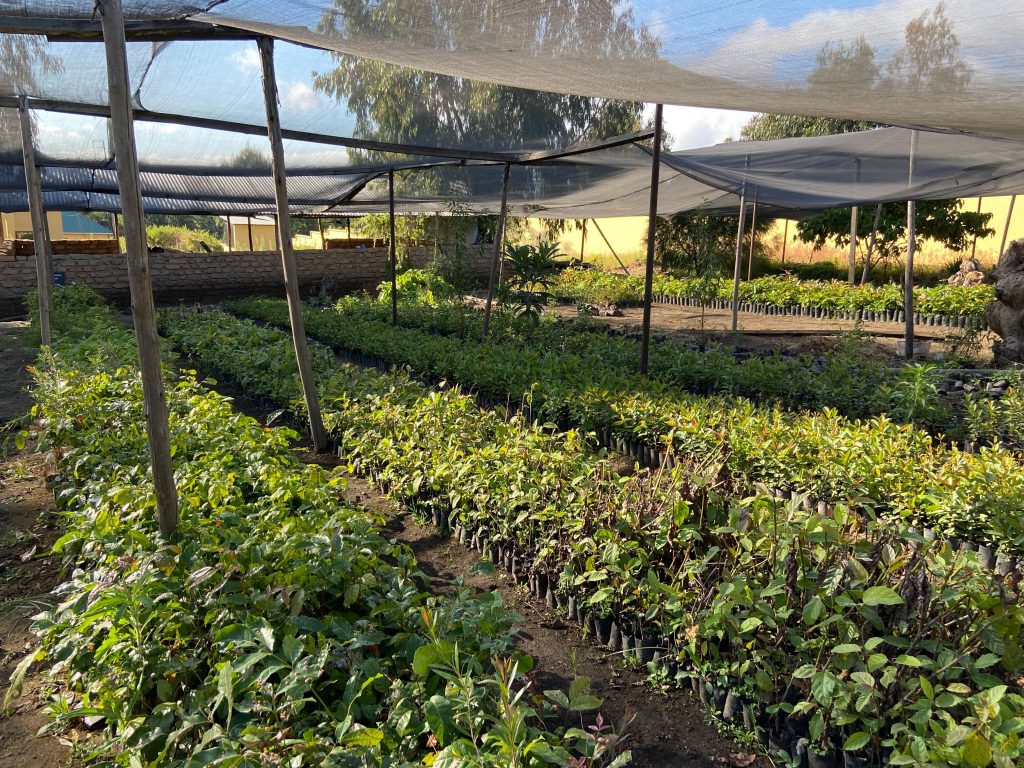
Tanzania is committed to protecting its forest and natural habitats while restoring degraded areas in collaboration with organisations such as WCS. For the last three years, WCS has been piloting REDD+ as a potential opportunity to fund forest conservation. My role is to support project implementation and engage with local stakeholders. I work closely with the Tanzania Forest Service (TFS) as the main project partner, which directly manages the forest. Apart from TFS, I also work very closely with our community engagement team, which plays a vital role in working with villages and educating schoolchildren about the importance of protecting and restoring nature.
We hope to manage or improve the management of more than 800,000 hectares of forests, made up of 36 forests. The project aims to reduce deforestation and degradation, strengthen species conservation and support sustainable community livelihoods. Of course, we face some challenges, but we are confident that if we are aligned with the long-term strategy of the Tanzania Forest Service and national climate change initiatives, we will be able to work together to avoid deforestation. WCS Tanzania envisions this project as a means to improve forests and wildlife habitats, help habitat connectivity and improve community livelihoods.
The Southern Highlands region is very important to us. It is known as the ‘food basket’ of Tanzania. There is huge potential for nature and people to work together, and I hope that we can make this work both here and in other regions of the country. In 2011 at the Masasani water catchment in the town of Tukuyu, we worked with the local villagers and Rungwe district to restore or transit a water catchment that was used for crops and allow the forest to regrow, so that more water would be available. The Nature Resource Committee of Kabale village has worked with us for over two years, and the amount of water available to all the villages has increased.
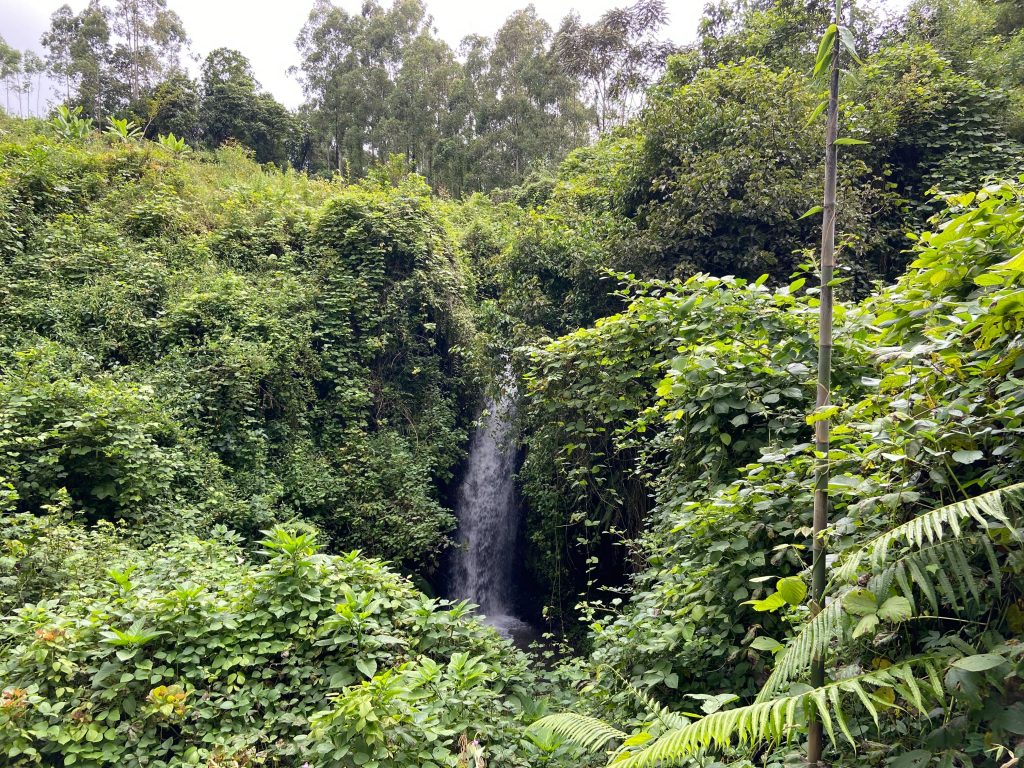
I am lucky that since I was a child, I loved nature. I hope that I can help others to learn and value nature again. Forests are still disappearing fast, and we don’t have much time left to halt deforestation to help slow climate change and prevent further biodiversity loss.
I believe we have forgotten how nature is connected to our health, livelihoods and food. I would like to see a future where conservation and taking care of our climate are an integral part of children’s education. We have to work hard to make that happen. My little forest back in my hometown is more degraded than when I lived there. To survive, the local people have planted more cash crops and fruit trees, but the demand for timber and energy is still high, which poses pressures on forests.
I believe the efforts we are taking to protect and restore natural habitats will benefit and be valued for generations. Proudly, Tanzania as a country has designed and defined potential areas that need protection, but efforts are needed to support the management of them. I hope that all the wildlife and biodiversity that we care about will be protected, alongside benefits to the adjacent communities.
I hope that the next generation will feel inspired in the same way that I have been.
This article was originally published in Landscape News as part of a narrative series from global conservationists working as part of Trillion Trees.

